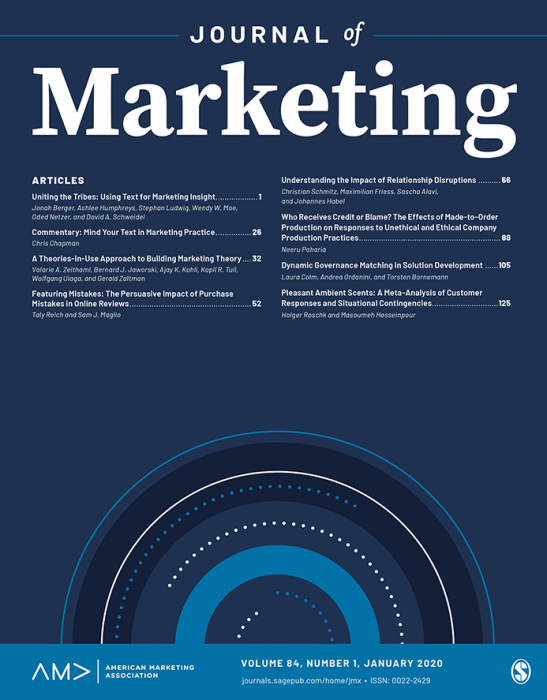快讯宝马很强大,Beemer则不然:昵称品牌影响品牌表现
IF 10.4
1区 管理学
Q1 BUSINESS
引用次数: 0
摘要
本研究调查了昵称品牌这一新颖现象,即企业将消费者赋予品牌的 "街头 "名称融入自身营销中(例如,布鲁明戴尔百货公司开设了一家 "布鲁米"(Bloomie's)商店)。虽然从业者预计采用这种策略会产生积极的效果,但目前的研究是对其可能的有效性进行的首次实证调查。根据言语行为理论,我们推测使用昵称代替正式名称是一种权力再分配行为,有效地向消费者表明了屈从,从而降低了消费者对品牌权力的感知,削弱了品牌的表现。我们采用多种方法,包括二手数据分析、实地研究和预先登记的实验,结果在一系列绩效指标上支持了这一观点。此外,我们还证明了这种影响取决于两个因素,即昵称品牌化(1)对有能力的品牌的绩效损害比对有热情的品牌的损害更大;(2)当昵称被用于以公共为导向(相对于以交易为导向)的信息中时,昵称品牌化的影响不那么明显。我们的研究引入了一个新的理论视角,其核心是品牌命名过程中蕴含的虚构意义,并就营销人员在营销中应如何处理或避免基于消费者的俚语提出了可操作的见解。本文章由计算机程序翻译,如有差异,请以英文原文为准。
EXPRESS: BMW is POWERFUL, Beemer is Not: Nickname Branding IMPAIRS Brand Performance
This research investigates nickname branding, a novel phenomenon whereby firms incorporate the ‘street’ names consumers give brands into their own marketing (e.g., Bloomingdale’s opening a Bloomie’s store). While practitioners anticipate positive results from deploying this tactic, the current research serves as the first empirical investigation of its likely effectiveness. Drawing on speech act theory, we theorize that using a nickname in place of a formal name serves as an act of power redistribution, effectively signaling submission to consumers, thereby reducing the perception of a brand’s power and weakening its performance. Using a multi-method approach that incorporates secondary data analyses, field studies, and pre-registered experiments, the results support this view across a range of performance metrics. In addition, we show this effect is contingent on two factors, such that nickname branding (1) harms performance more for competent brands than warm brands; and (2) is less pronounced when nicknames are used in messages that are communal-oriented (vs. transactional-oriented). Our research introduces a new theoretical perspective centering on the illocutionary meanings embedded in the process of naming brands and highlights actionable insights on how marketers should approach or avoid consumer-based slang in their marketing.
求助全文
通过发布文献求助,成功后即可免费获取论文全文。
去求助
来源期刊

Journal of Marketing
BUSINESS-
CiteScore
24.10
自引率
5.40%
发文量
49
期刊介绍:
Founded in 1936,the Journal of Marketing (JM) serves as a premier outlet for substantive research in marketing. JM is dedicated to developing and disseminating knowledge about real-world marketing questions, catering to scholars, educators, managers, policy makers, consumers, and other global societal stakeholders. Over the years,JM has played a crucial role in shaping the content and boundaries of the marketing discipline.
 求助内容:
求助内容: 应助结果提醒方式:
应助结果提醒方式:


